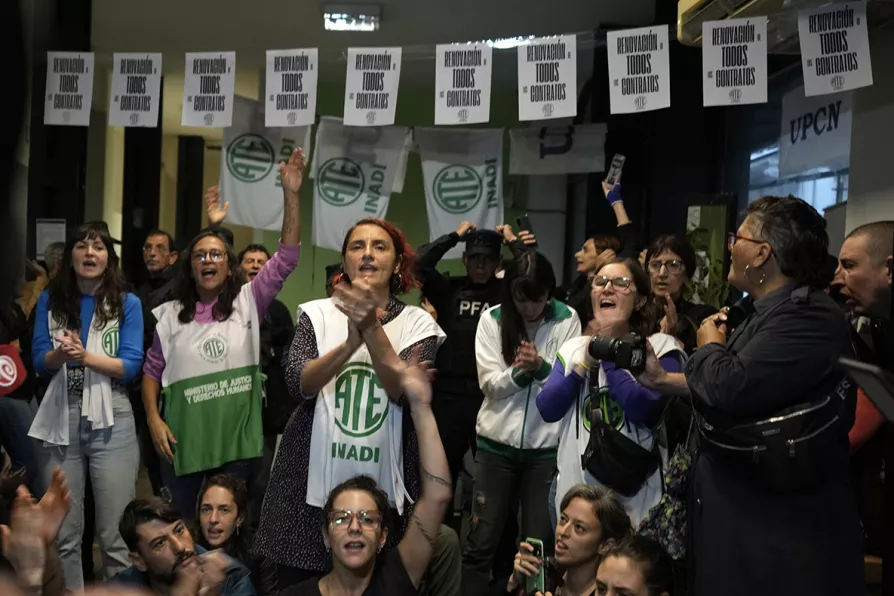Workers in Argentina occupy offices in protest against the government's cutting of 15K public-sector jobs

 State workers, some who have been laid off, protest against the dismissal of state employees, inside the National Institute against Discrimination, Xenophobia, and Racism in Buenos Aires, Argentina, April 3, 2024
State workers, some who have been laid off, protest against the dismissal of state employees, inside the National Institute against Discrimination, Xenophobia, and Racism in Buenos Aires, Argentina, April 3, 2024
ARGENTINA’S government cut 15,000 state jobs on Wednesday, part of President Javier Milei’s aggressive campaign to slash public spending, the latest in a series of economic measures that have put the ultra-neoliberal government on a collision course with trade unions.
Presidential spokesperson Manuel Adorni announced the job cuts in a news conference, portraying them as key to Mr Milei’s promised upheaval of Argentina’s public sector.
“It’s part of the work we are doing to reduce state expenses,” he told reporters, describing the dismissed workers as a drag on taxpayers.
Similar stories

After brutal police crackdowns on pensioners and the forced approval of secret IMF deals, trade unions are finally responding to grassroots pressure and fighting back against savage neoliberal reforms, reports BERT SCHOUWENBURG












